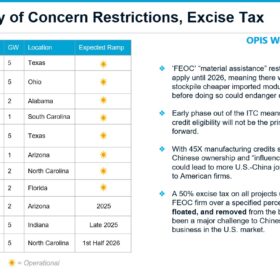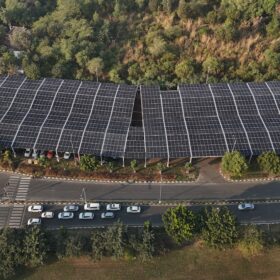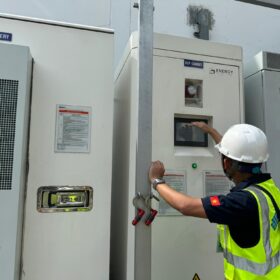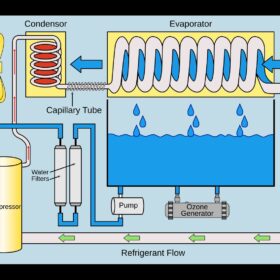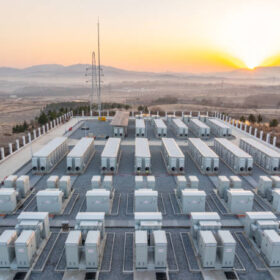US solar panel price from India stable at $0.288/W
In a new weekly update for pv magazine, OPIS, a Dow Jones company, provides a quick look at the main price trends in the global PV industry.
US House passes sweeping bill, leaving solar industry reeling
Despite vocal bipartisan support for clean energy tax credits, US House and Senate Republicans failed to adjust policies that would continue the rapid buildout of domestic clean energy.
India’s next solar frontier: Captive projects are powering industrial self-reliance
Industrial belts in Punjab, Haryana, Maharashtra, Gujarat, and Tamil Nadu are becoming hotspots for captive solar. The drivers vary from steep tariffs and policy incentives to strong ESG commitments by export-oriented businesses, but the result is the same: a distributed solar network powering India’s industrial economy.
ReNew receives final non-binding offer from Masdar, CPP Investments, ADIA, and Sumant Sinha
ReNew Energy Global has received a final non-binding offer from a consortium of its promoters to acquire the company’s entire issued and to be issued share capital not already owned by the Consortium, for cash consideration of $8.00 per share. This offer is 13.2% higher than the initial proposal made on Dec. 10, 2024.
IndiGrid, IFC partner to build 180 MW/360 MWh battery storage project in Gujarat
International Finance Corp. (IFC) has committed INR 4.6 billion (around $55 million) in long-term financing to IndiGrid to support the deployment of a 180 MW/360 MWh standalone battery energy storage system project in Gujarat.
Photovoltaics for atmospheric water harvesting
A scientist in Turkey has simulated eight PV-supported hybrid atmospheric water harvesting systems and compared their performances. They were all considered to operate with R1233zd(E), R1234yf, and R600a, as well as R32 refrigerants. The required PV system size was as low as 20 m2.
Enfinity closes $245 million for 22 GW solar-storage portfolio
Enfinity Global has secured a $245 million credit facility expansion to fund development, construction, and operation of its 22 GW solar and energy storage pipeline across the United States.
The impact of module pricing on solar project viability: Trends and predictions
India’s solar sector faces rising module costs due to recent developments, including the imposition of anti-dumping duties on solar glass and China’s reduction in export rebates on solar modules, impacting project viability. These shifts underline the delicate balance between promoting local manufacturing, pursuing geopolitical strategies, and navigating the economic realities of global trade.
Honeywell adds Li-ion Tamer for battery fire safety in buildings
Honeywell has acquired the Li-ion Tamer business from Nexceris, a leader in off-gas detection technology for lithium-ion batteries. Li-ion Tamer’s early warning technology detects battery off-gassing, which typically precedes thermal runaway, providing facilities with vital time to intervene before a battery fire starts.
VGF incentive cut may raise BESS tariffs by 10%, but impact likely temporary: SBICAPS
A new report by SBICAPS anticipates that the incentive cut under the second phase of the viability gap funding (VGF) scheme for standalone battery energy storage systems (BESS) could lead to a tariff increase of around 10%. However, it adds, this increase is manageable and could be absorbed in the coming months as capex costs continue to decline.
